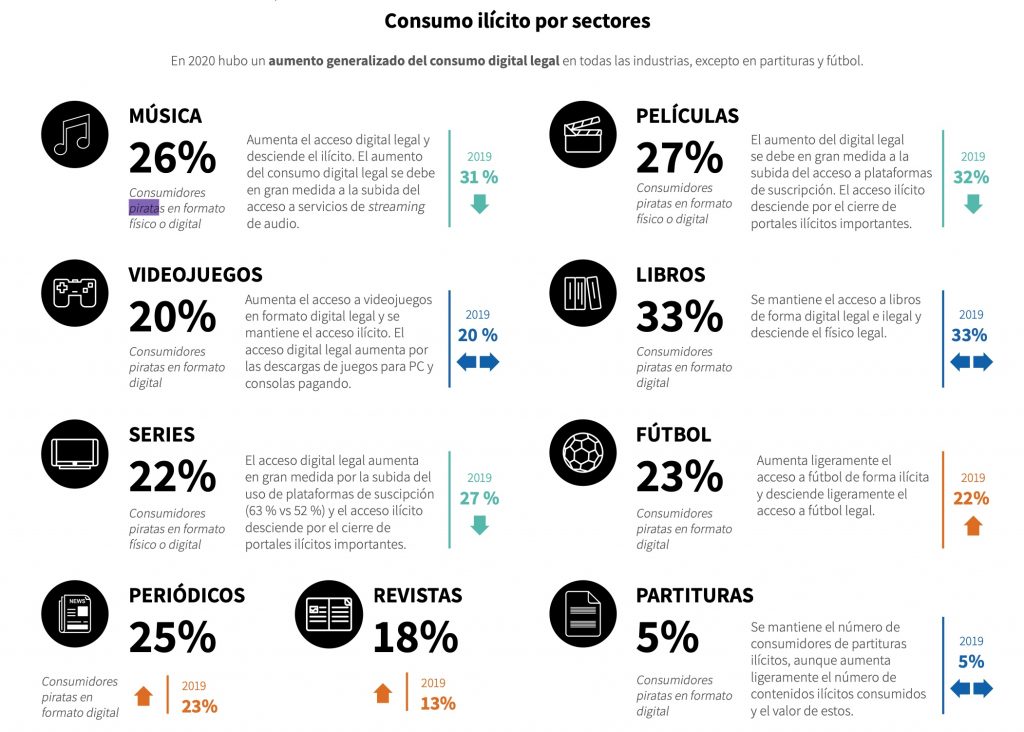Just a few years ago, Spain was singled out as one of the world’s five countries with the most copyright infringement. But now, about 82% of Spanish residents have access to at least two legal online video platforms. The average Spaniard spends about €39 per month on audiovisual services, according to a report published by OBS Business School of Spain. While piracy is down, one in four video streams today is fraudulent.
During the Coronavirus pandemic, audiovisual traffic over the Internet was up by 70%, but has since begun to decrease.
According to a summary of the report published by OBS, Digital piracy in Spain was down 10% in 2020 compared with 2018, and down 24% from 2015. In 2020, according to data from GfK, there were 5,239 million instances of illegal access (26% for movies and 21% for TV series programming). The associated revenue was about 31 billion euros, with a loss of 2,416 million euros (460 million for the audiovisual sector as a whole). As a result, there was a loss of 682 million euros in tax revenue, and 130,000 direct and indirect jobs that were not created.

Read the OBS news release (Auto-translated from Spanish to English by Google Translate)
Download the report Plataformas audiovisuales digitales: ¿Pagando o pirateando en pandemia? (in Spanish)
Why it matters
In Spain and Latin America, the greater availability of audiovisual content at attractive prices has helped to increase subscription rates to legal services while reducing digital piracy. Other factors include quality, range of content selections both old and new, ease of use across different screens.
Online services have moved video business models from “chronological linearity to the dictatorship of the recommendation algorithm,” to which both audiences and producers have had to adapt; according to a summary of a report.












